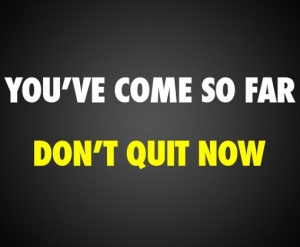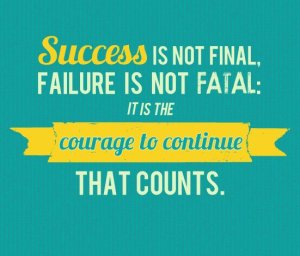 As entrepreneurs we generally want control of everything within our company, which means that when someone hands something off to us “yes” is the first thing that usually comes. That isn’t always a good thing because when you say yes without really thinking about it, things don’t always work out.
As entrepreneurs we generally want control of everything within our company, which means that when someone hands something off to us “yes” is the first thing that usually comes. That isn’t always a good thing because when you say yes without really thinking about it, things don’t always work out.
Whenever we need to say no but never end up saying it, it’s usually because of guilt. We feel guilty that if something goes wrong with a project it’s because we, personally, didn’t do something about it or simply because we don’t want to offend our peers.
You might not realize it, but saying no can actually save you from many headaches that you have to deal with. Here are some ways to say “no” without feeling guilty.
Think About It First – ‘Yes’ is often the answer we give people almost instantly without even thinking about how this may benefit you or potentially damage you. People would much rather have a well thought out no rather than an instant response without any consideration. A simple, “Can I think about it and get back to you later?” can work wonders for you, and it will generally lead you to an answer that you’re happy with after the fact.
Aces In Their Places – Sometimes we accept tasks because we simply want control over the situation. This is where delegation is critical. You should know the strengths and weaknesses of your team members, and who would be the best person for each task. If someone else can do the job as well as you can, it’s worth it to delegate. Entrepreneurs are busy people, so you need to prioritize and maintain balance.
Learn To Accept “No” From Others – If you can dish it, you have to be able to take it too. Learn to accept no from others. You need to understand that other people’s priorities aren’t always aligned with your own, and know that it’s almost never personal when someone says no.
You Can’t Do Everything – Is it really going to kill someone if you say no? No, it is not. You can’t do everything. Do things that you genuinely want to do for others and not just because you feel like obligated. It will make the things that you participate in much more rewarding and the 100% effort will be recognized because it’s genuine.
Make your commitments genuine by saying no to things you are not particularly interested in or do not have the time to do. You only have 24 hours in a day so use them wisely.

 The summer holidays are winding down, meaning that the hustle and bustle of regular office life will be coming back into most organizations come September. Our offices here at the
The summer holidays are winding down, meaning that the hustle and bustle of regular office life will be coming back into most organizations come September. Our offices here at the  I’ve made plenty of mistakes during my time as an entrepreneur. While I could have dwelled on them and got crushed by them, luckily I’ve always used them as lessons to push me forward. That being said, there’s a reason why mentors are usually those who are older than us.
I’ve made plenty of mistakes during my time as an entrepreneur. While I could have dwelled on them and got crushed by them, luckily I’ve always used them as lessons to push me forward. That being said, there’s a reason why mentors are usually those who are older than us. By nature, an entrepreneur runs head first into things regardless of the risk, meaning that sometimes we make mistakes that make us want to quit. Though it’s hectic and overwhelming, especially when dealing with multiple businesses, you need to learn to move past these small missteps to truly succeed.
By nature, an entrepreneur runs head first into things regardless of the risk, meaning that sometimes we make mistakes that make us want to quit. Though it’s hectic and overwhelming, especially when dealing with multiple businesses, you need to learn to move past these small missteps to truly succeed. There’s a big misconception when it comes to failure. Ever since we’ve been children, we’ve seen that failing is nothing but a negative experience. Teachers would be disappointed and parents would yell at you for failing a test. If you failed a course, you’d use up your valuable summer time taking make-up courses. There has always been negativity associated with failure.
There’s a big misconception when it comes to failure. Ever since we’ve been children, we’ve seen that failing is nothing but a negative experience. Teachers would be disappointed and parents would yell at you for failing a test. If you failed a course, you’d use up your valuable summer time taking make-up courses. There has always been negativity associated with failure.